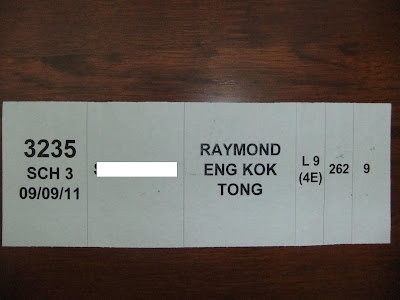The Cambodian general election will be held tomorrow and prime minister Hun Sen, two years short of celebrating his 30th anniversary as the country's top politician, is widely expected to breeze through it despite an increasing number of opposition supporters.
Like other Asian countries, the ruling Cambodian People's Party (CPP) is more concerned with the younger generation. Gen X as well as Gen Y voters tend to move in the opposite direction, literally, at the ballot box. More than half of Cambodia's population are aged 25 and below and they see things from a different perspective.
They had yet to come to this world during the Khmer Rouge period from 1975 to 1979 where 2 million people died in what is commonly known as the Cambodian Genocide. Many young Cambodians take peace for granted as they live in a post-war era. They have greater plans and ambitions so it is not surprising that economic issues are their main concern.
In the 2008 polls, the CPP won 90 out of 123 National Assembly seats. The opposition, mainly the Cambodian National Rescue Party (CNRP), looks set to reduce the deficit this time. CNRP has nothing to lose and will mount more pressure on CPP if the latter loses more seats to it.
An over-confident Hun Sen has declined to campaign, proving just how favourable the situation it is for him. However, he has cautioned that a civil war will be the result of his party losing, which is as likely as North Korea abandoning its nuclear programmes.
Sam Rainsy, the leader of the CNRP, who was back in his country last Friday after residing in France since 2010 to escape charges that are widely believed to be politically motivated. He was granted a royal pardon by the King at the request of Hun Sen but is ineligible to contest.
Rainsy is probably the sole opposition politician who has the ability and charisma to rival the long-serving Hun Sen. His return to his homeland may pull a few additional votes for the opposition but reality has hardly changed. Hun Sen will still be in power for the next five years.
Issues like phantom voters, unequal media access and the undisputed fact that CPP has total control of the state's machinery have rocked the campaign and raised doubts over the fairness of the election.
Unlike Thailand, where violence seems to be a must-have, the political activities in Cambodia have been relatively peaceful. Although Hun Sen and CPP will receive the majority of votes, they have to be mindful that the opposition will become a force to be reckoned with in the near future with a new generation of voters.
Like other Asian countries, the ruling Cambodian People's Party (CPP) is more concerned with the younger generation. Gen X as well as Gen Y voters tend to move in the opposite direction, literally, at the ballot box. More than half of Cambodia's population are aged 25 and below and they see things from a different perspective.
They had yet to come to this world during the Khmer Rouge period from 1975 to 1979 where 2 million people died in what is commonly known as the Cambodian Genocide. Many young Cambodians take peace for granted as they live in a post-war era. They have greater plans and ambitions so it is not surprising that economic issues are their main concern.
In the 2008 polls, the CPP won 90 out of 123 National Assembly seats. The opposition, mainly the Cambodian National Rescue Party (CNRP), looks set to reduce the deficit this time. CNRP has nothing to lose and will mount more pressure on CPP if the latter loses more seats to it.
An over-confident Hun Sen has declined to campaign, proving just how favourable the situation it is for him. However, he has cautioned that a civil war will be the result of his party losing, which is as likely as North Korea abandoning its nuclear programmes.
Sam Rainsy, the leader of the CNRP, who was back in his country last Friday after residing in France since 2010 to escape charges that are widely believed to be politically motivated. He was granted a royal pardon by the King at the request of Hun Sen but is ineligible to contest.
Rainsy is probably the sole opposition politician who has the ability and charisma to rival the long-serving Hun Sen. His return to his homeland may pull a few additional votes for the opposition but reality has hardly changed. Hun Sen will still be in power for the next five years.
Issues like phantom voters, unequal media access and the undisputed fact that CPP has total control of the state's machinery have rocked the campaign and raised doubts over the fairness of the election.
Unlike Thailand, where violence seems to be a must-have, the political activities in Cambodia have been relatively peaceful. Although Hun Sen and CPP will receive the majority of votes, they have to be mindful that the opposition will become a force to be reckoned with in the near future with a new generation of voters.




No comments:
Post a Comment